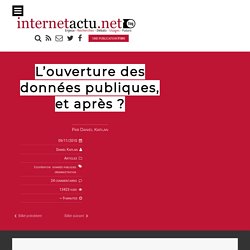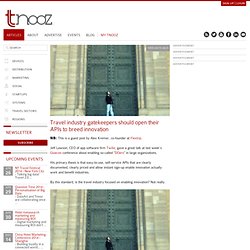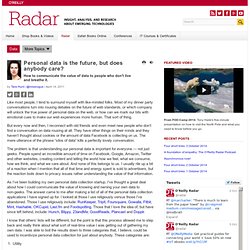

Opendata Ecosystème. OWNI. Les Echos. Open Knowledge Foundation. Opendata Europe. Opendata business. Opendata France. Opendata technique. Une recette de démarche Open Data - Partie 2. L’ouverture des données publiques, et après. Tous ceux qui, comme nous dans le cadre du programme Réutilisation des données publiques de la Fondation internet nouvelle génération, s’engagent en faveur de l’ouverture et de la réutilisation des données publiques, en espèrent des résultats féconds en termes de qualité de vie, de cohésion sociale, d’innovation et de croissance.

Mais les choses pourraient se passer tout autrement. Nous devons commencer à penser aux conséquences de l’ouverture des données, pour nous assurer qu’elles soient majoritairement positives. Big Data : les progrès de l’analyse des données. Charting the success of open data initiatives. Marcus Ebner: “In a globalized science world it can be very tiring if you don’t speak the same ‘language’ or can’t read someone else´s data.” - PoolParty. Cannibalize Business Development by Popularizing your API - Shaival Shah's Blog. The great fad of the last several years is self-serve and the ability to scale the distribution and access to your technology, product, service or data. The Twitter API, Facebook Connect, Yelp API for reviews, Youtube Embed codes, Google Maps API, you name it.
And everyone knows the APIs out of the media darling’s Foursquare, Zoho and Dropbox. But, how about little known web services that may have great functionality that you have likely never heard of like Mombo’s Social Movie Review API, Email Yak’s web-based email API, Guitar Cord’s music utility service API, YoLink’s semantic search API and literally thousands of others that have great products, but are rather unknown. Business Development 2.0 isn’t a new concept. Travel industry gatekeepers should open their APIs to breed innovation. NB: This is a guest post by Alex Kremer, co-founder at Flextrip.

Jeff Lawson, CEO of app software firm Twilio, gave a great talk at last week’s Gluecon conference about enabling so-called “DOers” in large organizations. His primary thesis is that easy-to-use, self-service APIs that are clearly documented, clearly priced and allow instant sign-up enable innovation actually work and benefit industries. By this standard, is the travel industry focused on enabling innovation? Not really. There are dozens of APIs and data feeds offered by large and small travel organizations sitting on mountains of data, but many of these APIs share significant problems.
The most common are: No self-service signup — must talk to a sales/BD personData constraints — only serving part of a larger dataset. All of the above represents myopic thinking and severely limits innovation. What needs to happen? The practical case for open, easily accessible APIs is clear. 1. This should be the easiest issue to solve. 2. 3. 4. Personal data is the future, but does anybody care? Like most people, I tend to surround myself with like-minded folks.

Most of my dinner party conversations turn into rousing debates on the future of web standards, or which company will unlock the true power of personal data on the web, or how can we mark our bits with emotional cues to make our web experiences more human. That sort of thing. But every now and then, I reconnect with old friends and even meet new people who don’t find a conversation on data rousing at all. They have other things on their minds and they haven’t thought about cookies or the amount of data Facebook is collecting on us. The mere utterance of the phrase “silos of data” kills a perfectly lovely conversation. The problem is that understanding our personal data is important for everyone — not just geeks.
Who Is More Trust-Worthy with Our Data: The Government or Big Companies? (TCTV) We invited Reid Hoffman and Tim O’Reilly — two of the biggest thinkers in the Valley– into the studio to talk about what Hoffman calls “Web 3.0.”

He argues the next wave isn’t as simple as MOBILE! As he first discussed at SXSW, it’s about companies running on any platform or in the real world using the last few decades of data being gathered on our virtual and actual selves to build stunningly innovative new products and services. In this segment, we talk about the obviously frightening implications of that and whether we should fear government or business more. Tomorrow, we’ll focus on the good of the trend, including a segment on the business opportunities in Web 3.0 and one on some way-out-there potential new applications that could change our lives. Enjoy! REGARDS SUR LE NUMERIQUE: Rsln : - Rencontre RSLNmag est édité par Microsoft et se consacre à l’analyse et au décryptage du monde numérique..